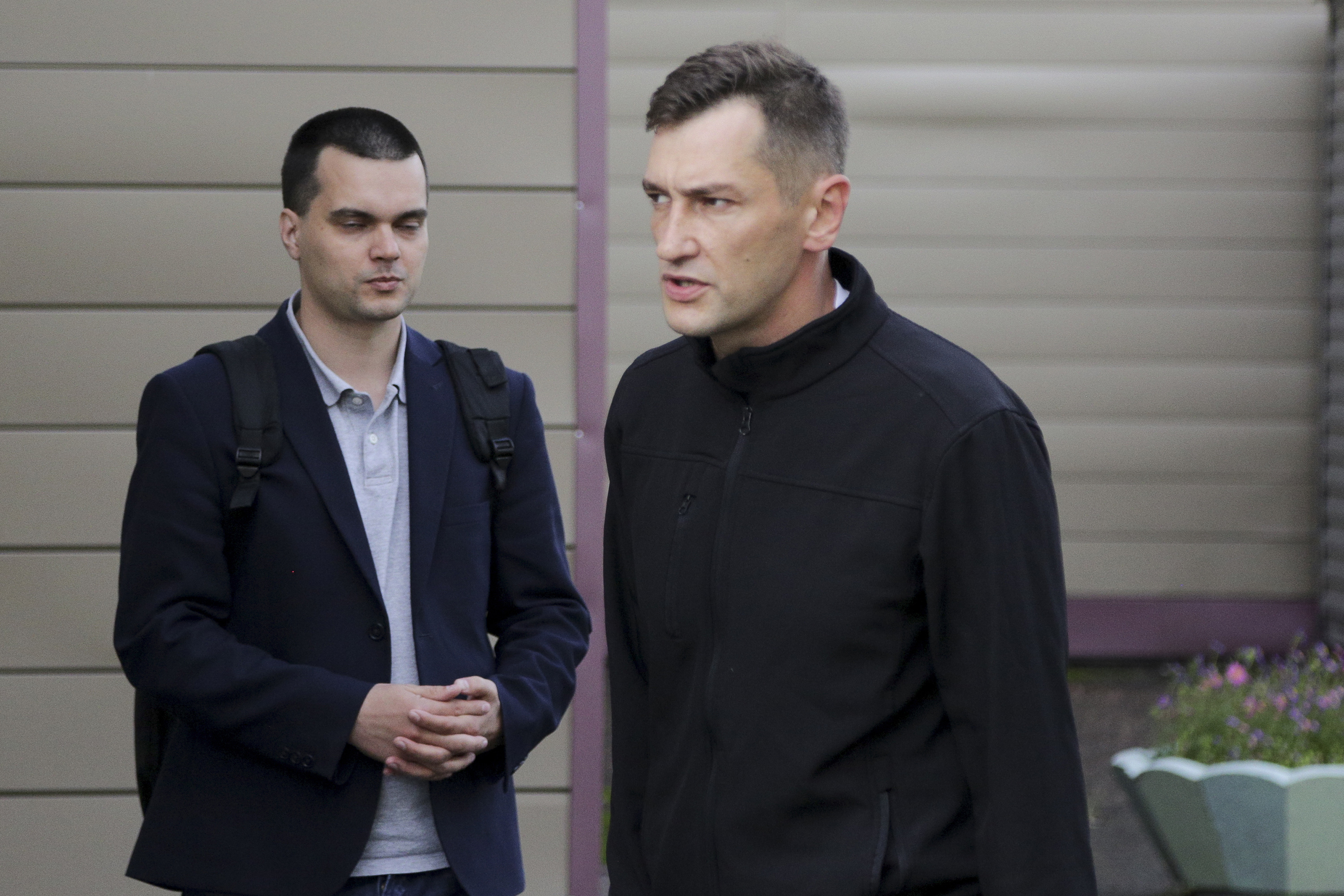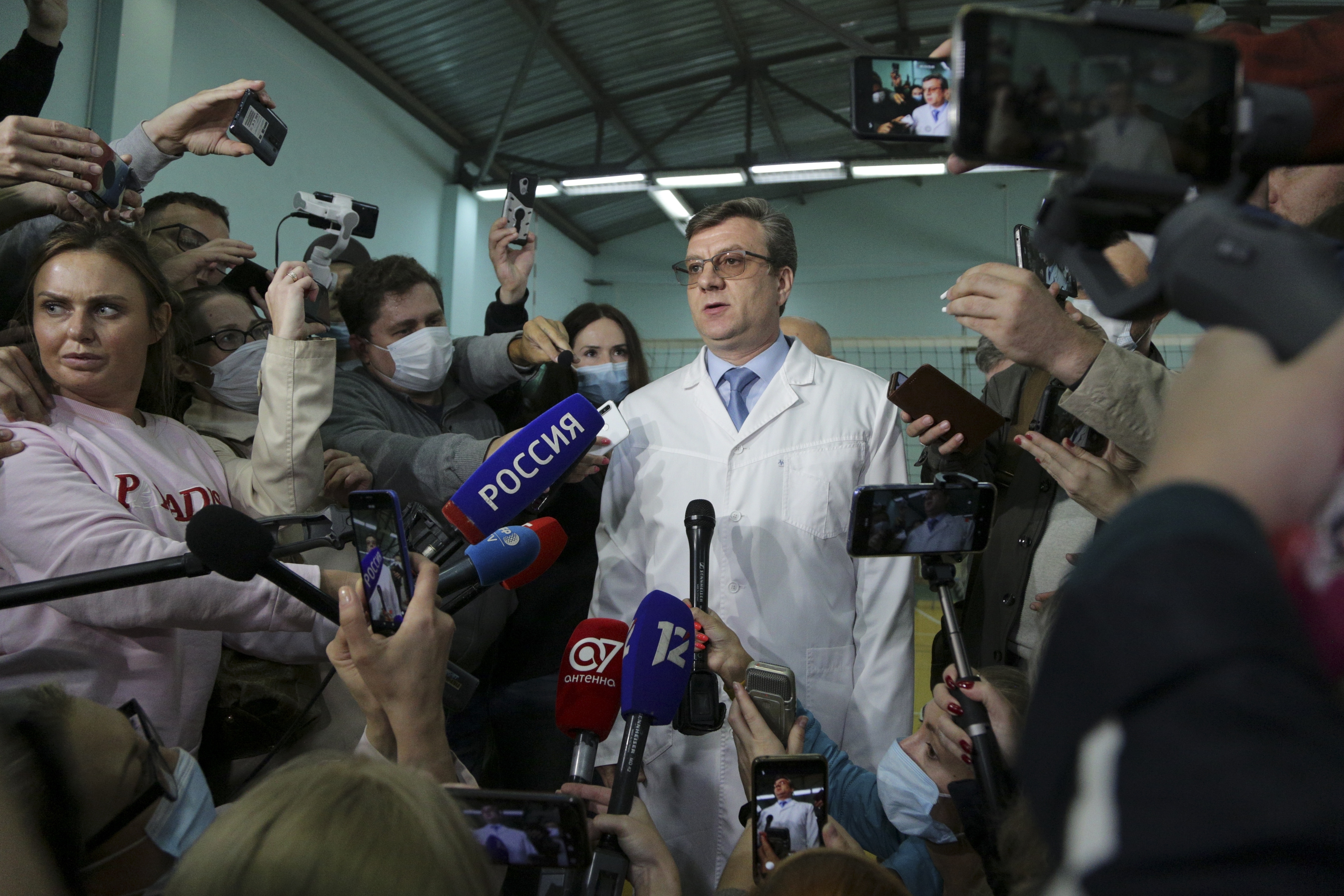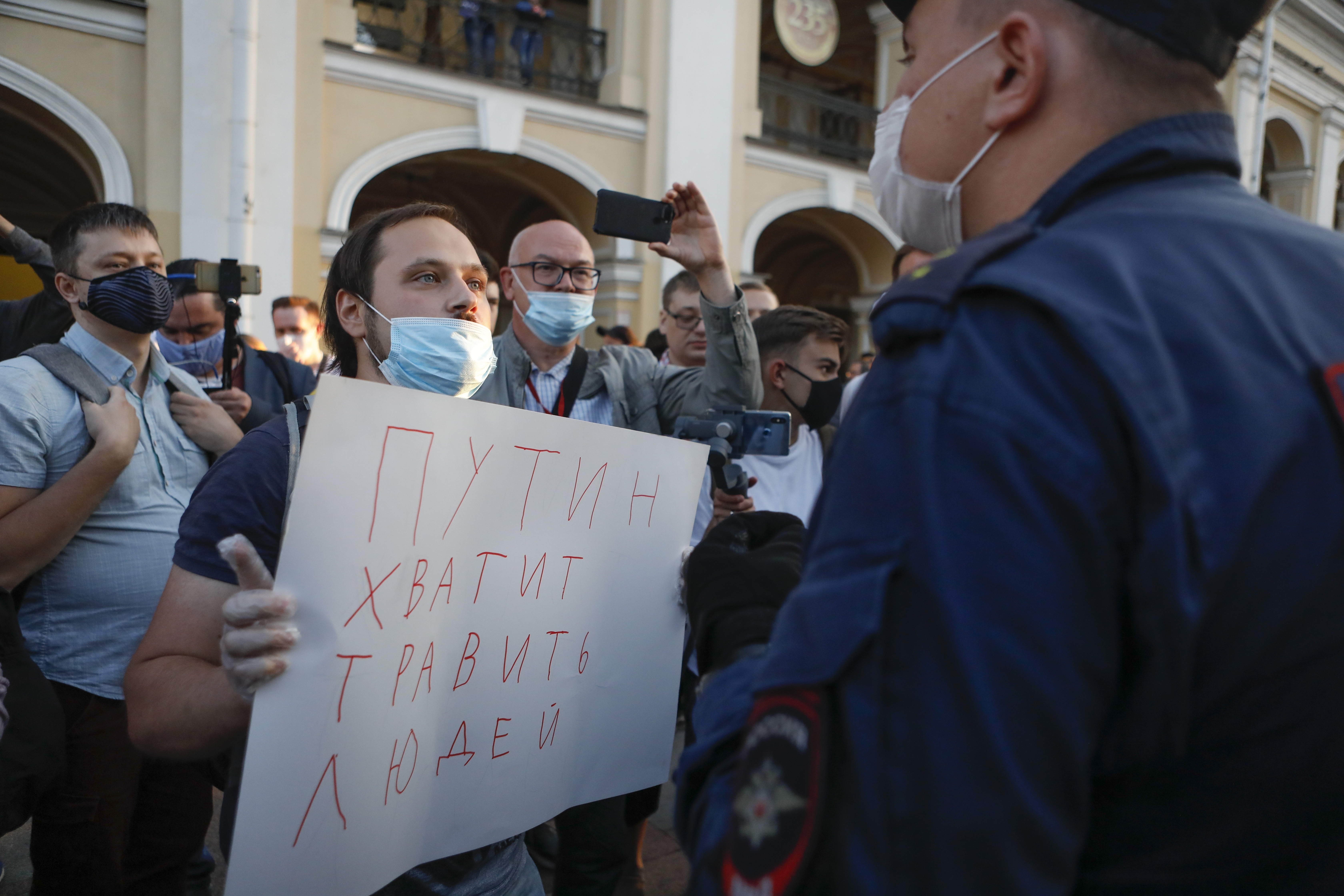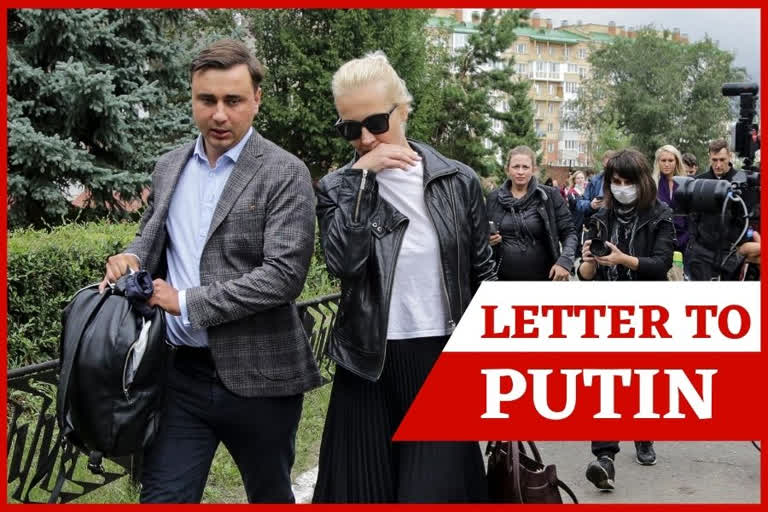Moscow: The wife of Russian opposition leader Alexei Navalny has written a letter to President Vladimir Putin asking him to allow her husband to travel to Germany for medical treatment.
It follows a refusal by medical staff at Omsk Ambulance Hospital no 1 to allow Navalny to be released.
Family and allies of Russian opposition leader Alexei Navalny were fighting Friday to get him moved to a German clinic from the Siberian hospital where he has been in a coma for over 24 hours after local doctors refused to authorize the transfer and amid confusion about what caused the politician’s grave condition.

Navalny, a 44-year-old politician who is one of President Vladimir Putin’s fiercest critics, was admitted to an intensive care unit in a coma in the Siberian city of Omsk on Thursday, following what his supporters are calling a suspected poisoning that they believe was engineered by the Kremlin.
A plane with German specialists and all the necessary equipment landed at Omsk airport on Friday morning, prepared to take Navalny to a clinic in Berlin. But doctors at the hospital said his condition was too unstable to transport him.

Navalny's supporters denounced the medical verdict as a ploy by the authorities to “stall and wait” until the suspected poison no longer is traceable in his system. A chief doctor in Omsk said the physicians treated Navalny didn’t “believe the patient suffered from poisoning.”
Kremlin spokesman Dmitry Peskov said he wasn't aware of any instructions to stop the transfer and that it was purely a medical decision that doctors made based on Navalny's condition.
“It may pose a threat to his health,” Peskov said.
Navalny fell ill on a flight back to Moscow from the Siberian city of Tomsk on Thursday and was taken to the hospital after the plane made an emergency landing in Omsk. His team made arrangements to transfer him to Charité, a clinic in Berlin that has a history of treating famous foreign leaders or dissidents and insisted that the transfer is paramount to saving the politician’s life.
“The ban on transferring Navalny is needed to stall and wait until the poison in his body can no longer be traced. Yet every hour of stalling creates a threat to his life,” Yarmysh tweeted.
Read more: Russian Oppn leader Navalny not poisoned: Doctors
German officials have been in contact with both Russians and a private group that sent a plane to pick Navalny up and support the initiative. “If Mr Navalny wants to get treated in Berlin and if he can come to Berlin, the Charité hospital is ready,” Berlin Mayor Michael Mueller said.
Mixed messages came about what caused Navalny's condition. While his supporters and family members continue to insist on poisoning, Omsk hospital deputy chief doctor, Anatoly Kalinichenko, said that no traces of poison were found in the politician's body and doctors didn't “believe the patient suffered from poisoning.”
Medical Verdict:
Kalinichenko said a diagnosis has been determined and relayed to Navalny’s family members. Navalny's spokesman, Kira Yarmysh, tweeted that the politician's family merely given “a range of symptoms that can be interpreted differently.”
“Doctors still can't determine the cause of Alexei's condition,” she said.

Omsk news outlet NGS55 published a video statement of the hospital's chief doctor, Alexander Murakhovsky, saying that a metabolic disorder was the most likely diagnosis.
“It may have been prompted by a sharp plunge in blood sugar on the plane, which caused the loss of consciousness,” Murakhovsky said in the video.
Supporters call:
Navalny's supporters angrily rejected the doctor's hypothesis.
“They're not allowing the transport of Alexei because of a metabolic disorder and a plunge in blood sugar?!” Ivan Zhdanov, head of Navalny's Foundation for Fighting Corruption, said in Tweet.
Navalny’s physician Dr Anastasia Vasilyeva, who flew to Omsk with the politician’s wife on Thursday, said poisoning with a toxic substance may have caused the alleged metabolic disorder.

Also read: 'Russia looking for partnership with India to produce COVID-19 vaccine'
European Union:
European Union spokeswoman Nabila Massrali said Friday the 27-nation bloc expects a swift, independent, transparent investigation into what caused Navalny’s condition. "The EU urged Russian authorities to stand by their promises to allow Mr Navalny to be safely and speedily transferred abroad to receive medical treatment in line with the wishes of his family,” she said.
Like many other opposition politicians in Russia, Navalny has been frequently detained by law enforcement and harassed by pro-Kremlin groups. In 2017, he was attacked by several men who threw antiseptic in his face, damaging an eye.
Incident:
Last year, Navalny was rushed to a hospital from prison, where he was serving a sentence following an administrative arrest, with what his team said was suspected poisoning. Doctors said he had a severe allergic attack and discharged him back to prison the following day.
Navalny’s Foundation for Fighting Corruption has been exposing graft among government officials, including some at the highest level. Last month, he had to shut the foundation after a financially devastating lawsuit from Yevgeny Prigozhin, a businessman with close ties to the Kremlin.
The most prominent member of Russia’s opposition, Navalny campaigned to challenge Putin in the 2018 presidential election but was barred from running.
He set up campaign offices across Russia and has been promoting opposition candidates in regional elections, challenging members of Russia’s ruling party, United Russia. One of his associates in Khabarovsk, a city in Russia’s the Far East that has been engulfed in mass protests against the arrest of the region’s governor, was detained last week after calling for a strike at a rally.
Also read: Discussions with Russia on COVID-19 vaccine underway: WHO
(With inputs from AP)



